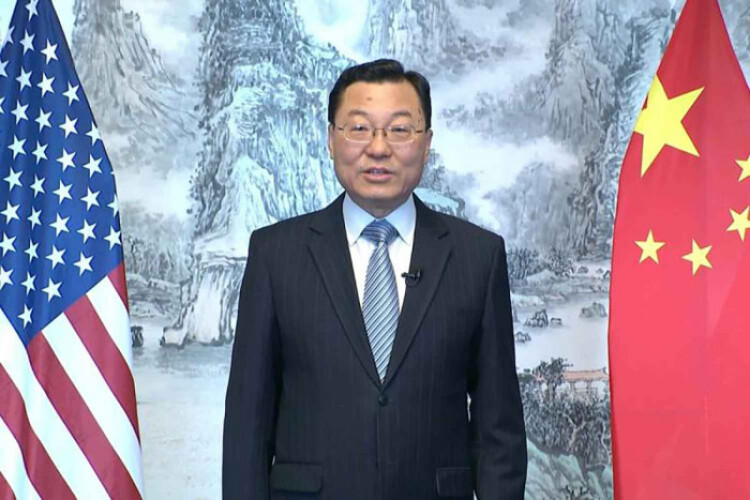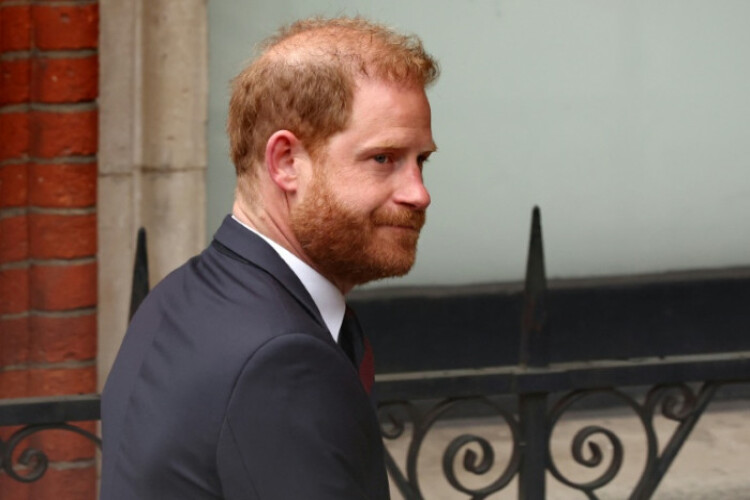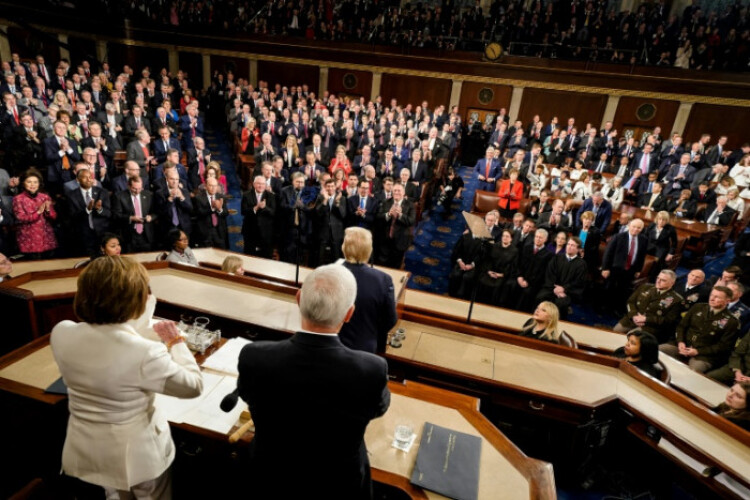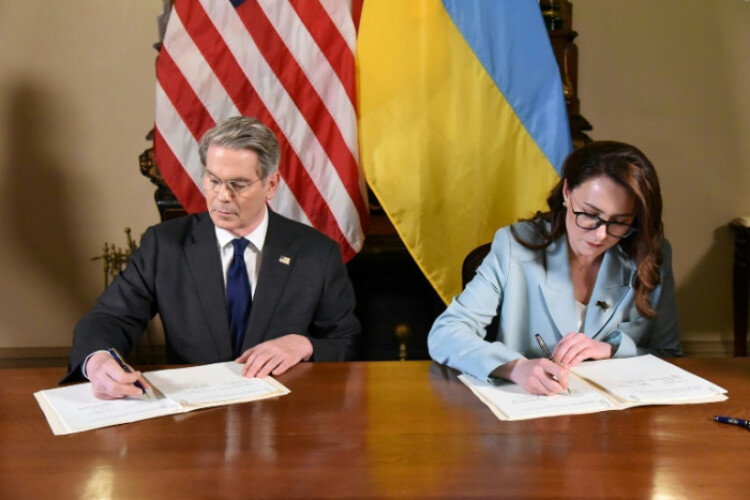
Beijing's top diplomat in the US took another hit at Washington's tariffs on Chinese goods on Saturday, while reiterating that China was open to dialogue -- but only on the basis of reciprocity and mutual respect.
"Tariff hikes benefit no one. They disrupt businesses, raise costs, rattle financial markets and slow down global growth," said Chinese ambassador Xie Feng, to an audience in Washington during the embassy's annual open day to the public.
"The tariff war was not launched by China," he continued, adding that if the US wanted to talk, "it should act in the spirit of equality, respect and reciprocity".
Xie delivered his remarks as Beijing and Washington remain locked in a trade stand-off.
US President Donald Trump in recent days had claimed that bilateral trade talks were under way and that Beijing had made overtures to Washington, going so far as to say that Chinese President Xi Jinping had called him. Meanwhile, Beijing has repeatedly denied that any negotiations were taking place.
The apparent impasse could be breaking. China's commerce ministry on Friday acknowledged for the first time what it said were repeated attempts by senior US officials to begin negotiations, noting it was now considering talks.
But it insisted Beijing would only engage in such dialogue if Washington first cancelled its tariffs on Chinese goods. Meanwhile, China's foreign ministry has repeatedly stated that "doors are open" for talks but only if they are grounded in "equality, respect and mutual benefit".
The Chinese ambassador on Saturday sought to emphasise China's strength.
"As the world's second-largest consumer market, with the biggest middle-income population, China is now a key trade partner for over 150 countries," Xie said.
"No matter how the world changes, China remains committed to steady growth and greater openness," he continued, adding that Beijing did not want to fight with the US but will not be "intimidated".
Xie also took the opportunity to remind the US how much it has benefited from global trade, particularly in cementing its lead in services, as well as trade with China specifically, noting the relationship was "overall balanced and mutually beneficial".
"In 2022 alone, the sales ranking of the US-owned enterprises in China significantly exceeded those of Chinese-owned enterprises in the US by over 400 billion US dollars," he said.
Since embarking on his second presidential term in January, Trump has imposed new tariffs of 145 per cent on Chinese imports.
The US leader has argued that Beijing engaged in unfair trade practices for years and did not do enough to clamp down on China's exports of fentanyl precursors, which Washington has blamed for America's opioid crisis.
In retaliation, China imposed tariffs of 125 per cent on US imports and restricted exports of some critical materials.
But both countries have taken steps to exempt certain goods from the tariffs, with US and international media in recent days reporting that Beijing is weighing more exemptions.
Separately on Friday, a Wall Street Journal report suggested that Beijing was considering ways to address the Trump administration's concerns about its role in the fentanyl trade.
The ongoing recalibration in stance by both sides is emerging as the economic toll of the tit-for-tat tariffs becomes clear.
The International Monetary Fund in April cut its economic growth forecast for both countries as well as the world, warning that the tariffs had increased the risk of a downturn.
Meanwhile, newly released Chinese government data showed a slowdown in factory activity last month, and US government figures confirmed the first quarterly economic contraction since 2022.
On Thursday, US Treasury Secretary Scott Bessent said he was "confident" that the Chinese would want a deal, warning that continuing on the current path could be "devastating" for their economy. Three days earlier, he said that he believed it was "up to China to de-escalate".
"Tariff hikes benefit no one. They disrupt businesses, raise costs, rattle financial markets and slow down global growth," said Chinese ambassador Xie Feng, to an audience in Washington during the embassy's annual open day to the public.
"The tariff war was not launched by China," he continued, adding that if the US wanted to talk, "it should act in the spirit of equality, respect and reciprocity".
Xie delivered his remarks as Beijing and Washington remain locked in a trade stand-off.
US President Donald Trump in recent days had claimed that bilateral trade talks were under way and that Beijing had made overtures to Washington, going so far as to say that Chinese President Xi Jinping had called him. Meanwhile, Beijing has repeatedly denied that any negotiations were taking place.
The apparent impasse could be breaking. China's commerce ministry on Friday acknowledged for the first time what it said were repeated attempts by senior US officials to begin negotiations, noting it was now considering talks.
But it insisted Beijing would only engage in such dialogue if Washington first cancelled its tariffs on Chinese goods. Meanwhile, China's foreign ministry has repeatedly stated that "doors are open" for talks but only if they are grounded in "equality, respect and mutual benefit".
The Chinese ambassador on Saturday sought to emphasise China's strength.
"As the world's second-largest consumer market, with the biggest middle-income population, China is now a key trade partner for over 150 countries," Xie said.
"No matter how the world changes, China remains committed to steady growth and greater openness," he continued, adding that Beijing did not want to fight with the US but will not be "intimidated".
Xie also took the opportunity to remind the US how much it has benefited from global trade, particularly in cementing its lead in services, as well as trade with China specifically, noting the relationship was "overall balanced and mutually beneficial".
"In 2022 alone, the sales ranking of the US-owned enterprises in China significantly exceeded those of Chinese-owned enterprises in the US by over 400 billion US dollars," he said.
Since embarking on his second presidential term in January, Trump has imposed new tariffs of 145 per cent on Chinese imports.
The US leader has argued that Beijing engaged in unfair trade practices for years and did not do enough to clamp down on China's exports of fentanyl precursors, which Washington has blamed for America's opioid crisis.
In retaliation, China imposed tariffs of 125 per cent on US imports and restricted exports of some critical materials.
But both countries have taken steps to exempt certain goods from the tariffs, with US and international media in recent days reporting that Beijing is weighing more exemptions.
Separately on Friday, a Wall Street Journal report suggested that Beijing was considering ways to address the Trump administration's concerns about its role in the fentanyl trade.
The ongoing recalibration in stance by both sides is emerging as the economic toll of the tit-for-tat tariffs becomes clear.
The International Monetary Fund in April cut its economic growth forecast for both countries as well as the world, warning that the tariffs had increased the risk of a downturn.
Meanwhile, newly released Chinese government data showed a slowdown in factory activity last month, and US government figures confirmed the first quarterly economic contraction since 2022.
On Thursday, US Treasury Secretary Scott Bessent said he was "confident" that the Chinese would want a deal, warning that continuing on the current path could be "devastating" for their economy. Three days earlier, he said that he believed it was "up to China to de-escalate".











